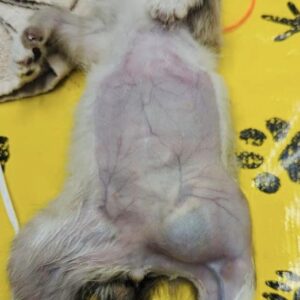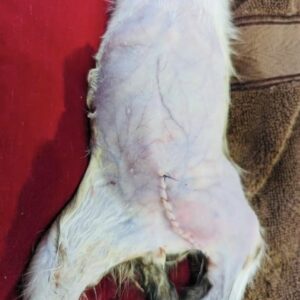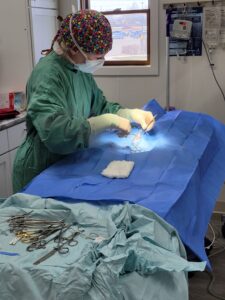Contact Us!
Hernia Repair
Animal Doctor provides Hernia Repair. We manage pain and post care. We accept referrals and provide second opinions.
Description: Hernias are an abnormality in the body wall that is either a result of incomplete formation (congenital) or secondary to trauma. Hernias can be located anywhere, but the most common types are umbilical, inguinal, diaphragm, and perineal.
Symptoms & What to look for:
- Umbilical, Inguinal and Perineal: Most are asymptomatic. The main exception is if their bowels of intestine get trapped outside of the hernia and cause severe abdominal pain. Vomiting, anorexia, and constipation would be the most common presenting complaints. Abnormal swelling that feels soft and can disappear/reappear.
- Congenital: Likely asymptomatic and found incidentally.
- Traumatic: Increased respiration rate / struggling to breath normally.
- Diaphragm: Increased breathing effort and or respiration rate


What questions do we ask?
- Where is the mass/swelling?
- Describe any changes that you have noticed over time?
- When did you first notice it?
- Has the mass ever been evaluated? If so, was an FNA or histopath performed?
What are the steps we take to treat your pet?
- Physical examination to determine the location and severity of the hernia.
- Surgery is the treatment choice for all types of hernias to prevent further complications from the defect.
- Neuter will be recommended for intact males with a perineal hernia.
Animal Doctor Hernia Repair potential treatment plans?
Oral medications
- Antibiotics to inhibit bacterial growth.
- Non-steroidal anti-inflammatory medications will be prescribed to reduce inflammation and help with pain control.
- Opioid pain medications will be prescribed if needed for extra pain control in severe cases.
Injections
- Opioid pain medications will be given as a part of the anesthesia plan.
- Non-steroidal anti-inflammatories might be given while under anesthesia.
- Antibiotics might be given while under sedation/anesthesia for severe cases.
What are the risks if hernias are left unmanaged?
The largest risk of leaving an umbilical, inguinal or perineal hernia unrepaired is strangulation of gastrointestinal tract. Perineal hernias are also at a high risk of constipation.
The largest risk of leaving a traumatic diaphragmatic hernia unrepaired is death due to inability to breath and exchange oxygen.
Animal Doctor Provider
Dr. Hoffman











